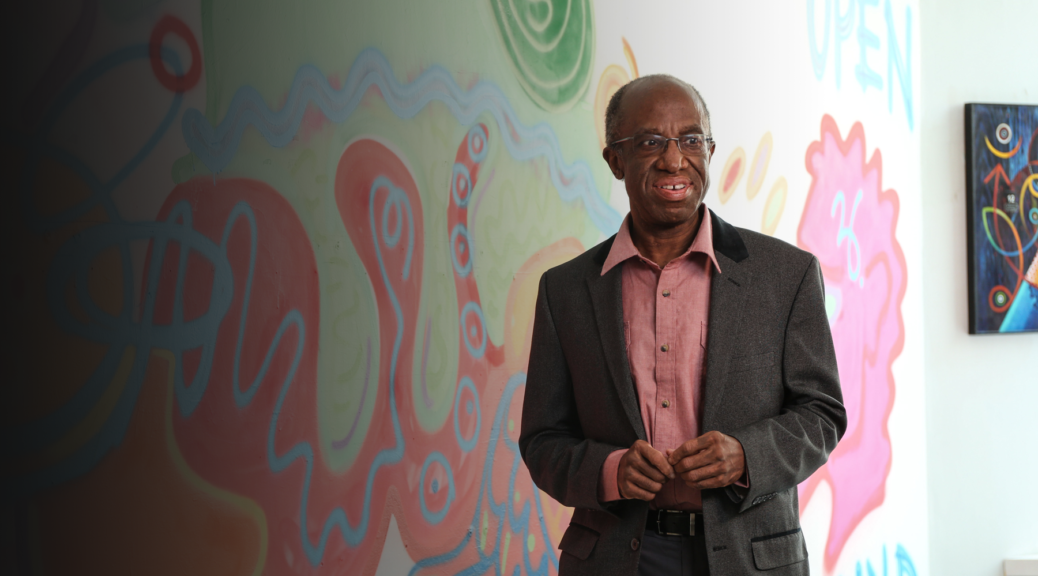
Exemplary Maestro Michael Morgan, 63
It was a 1976 young conductors competition of the Baltimore Symphony, with a predictable array of well-scrubbed young men in their early- to mid-20s competing. And in this group appeared a striking youth, barely 17, seemingly from another world, wearing the casual togs he’d used for any day at his public high school. For the finals he conducted a movement from a Brahms symphony that propelled me to my feet to watch intently. He evoked ear-caressing sounds of ethereal beauty, sounds I had not heard any of the far more experienced competitors achieve. This was a youth with the makings of genius, doing it all with the confidence of a veteran. This was the unlikely beginning of Michael Morgan, symphony conductor.
He won none of the three prizes awarded in that 1976 American Bicentennial competition, given merely a “nice-try” honorable mention. The Music Professor Elliott Galkin on the judges’ panel dismissed him as having no real conducting technique nor discipline. Perhaps. But for this listener, he had made the sounds to lift both heart and soul.
The untimely death this weekend of Morgan, of an infection at age 63, closed out a mercurial career the last 30 years of which were as music director of the Oakland Symphony.—the longest tenure in the orchestra’s history. Coming from modest circumstances in Washington DC, he got recommendations and scholarship aid to enter the elite Oberlin Conservatory of Music and was selected to study one summer under Leonard Bernstein’s tutelage at Tanglewood, MA.
Still in his 20s, he appeared at the Vienna State Opera to lead a Mozart performance, and was also appointed the assistant conductor of the Chicago Symphony by the venerable Georg Solti, no less.
But his real forte evolved during his 30-year stint at the helm of the Oakland Symphony. He turned out to be an exemplary community builder, drawing unprecedented black listeners to the concerts and annotating his concerts with self-effacing wit. Recently leading the Charleston with the San Francisco Symphony, he quipped, yes, the Charleston had been the dance that epitomized the Roaring Twenties. “We’re hoping for another Roaring Twenties, but without the crash at the end….”
He brought in performers of many musics, including Latino, jazz, African-American and Far-Eastern, and works by contemporary women composers. He also rescued from oblivion the exemplary Symphony No. 3 (1847) by the French woman Louise Farrenc, performing it recently on both sides of San Francisco Bay. Yet more significant was his active role with inner-city youth, talking to school groups as well as leading the Oakland Symphony Youth Orchestra. In short, if you ever needed a textbook example of what a symphony conductor could and should do to enrich the musical life of a city, Morgan was it.
And now he is lost at age 63, losing possible decades on the podium, educating youngsters while enriching the multi-cultural environment. Consider that Michael Tilson Thomas retired from the S.F. Symphony at 75, Solti conducted into his 80s, and Herbert Blomstedt is still doing it in his 90s. An avowed gay, Morgan left neither wife nor children.
Overall, the Oakland Symphony has had little luck with its maestros’ longevity. The engaging, good-humored Calvin Simmons, its previous black music director, had passed away in a canoeing incident in his mid-30s during the 1980s, after which the orchestra declared bankruptcy, reformulating in its present form with Morgan’s arrival in 1991.
Clearly, he was one in a million. Will he ever be altogether replaceable??